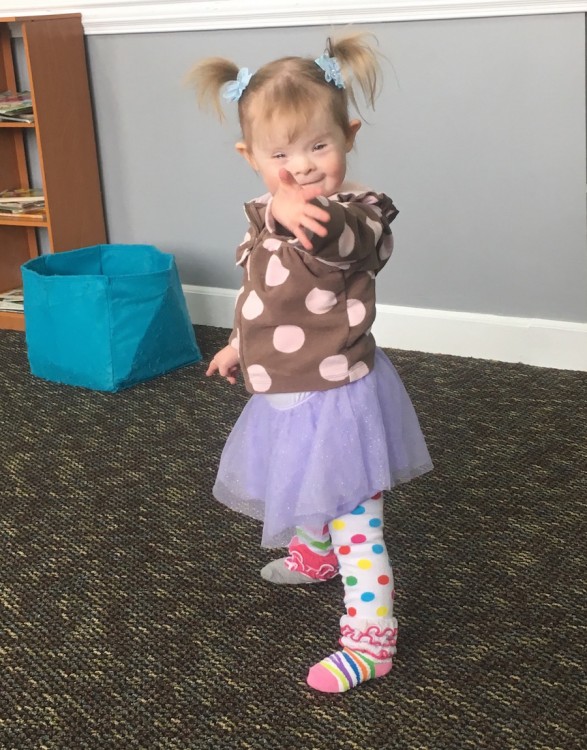I’ve written about grieving my daughter’s prenatal Down syndrome diagnosis before, but I haven’t written why that grief was important for me. I haven’t shared what drove it or how I view it now.
That grief was born of what felt like the world crashing down around me. When I heard the diagnosis and all the worst-case scenarios, all I could hear is that someone took the path I’d imagined for my child. In that sterile, medical environment they left her in a small circle, defined by an outdated book, her almond eyes and low muscle tone. A spot defined by limitations instead of potential.
I grieved over the challenges she would face and over the intolerance she would undoubtably encounter in this world. As a mom, I want to take away my children’s pain and soften their landings. I want to take any intolerance and wrap it up and hide it from them so they never see it. I grieved because I knew I wouldn’t be able to shield her from hurt forever. I grieved because I knew she may have to work harder for everything than I’ve ever had to.
It wasn’t until I found blogs and met families further down their paths that I saw the circle she was placed in expand, slowly becoming the winding path she’s proudly bear-crawling down.

But when we don’t talk about our sadness, it makes it isolating and a source of shame. It took me almost two years to embrace my initial grief and stop being embarrassed by it. It took a lot less time to move past the grief and embrace the joy, because the joy was a quick Google search and a tight-knit Down syndrome community away. I believe when we stigmatize grief, we hinder progress.
When I share my stories of my daughter Everly, they are filled with hope and humor and love. But to get the whole picture, you need to see that it started with darkness for me. I look over at her now, standing independently and concentrating as she hesitantly takes one… two… three wobbly steps before she falls down, only to stand back up with determination and try again. I navigated her diagnosis much the same way. Slow, wobbly moves out of my grief, determined to find our path again. And just like I know she will soon be confidently striding and then effortlessly running, I found my stride out of the darkness onto my path of joy.
I choose to no longer be ashamed of my initial grief. That grief made me stronger. It forced me to search the depths of my soul, and it makes me fight that much harder for acceptance. But it also exposed a raw, emotional side of me that has made me love harder, appreciate more and ultimately made me a better mother.
Follow this journey on Happily Everly After.
The Mighty is asking its readers the following: What’s one secret about you or your loved one’s disability and/or disease that no one talks about? If you’d like to participate, please send a blog post to community@themighty.com. Please include a photo for the piece, a photo of yourself and 1-2 sentence bio. Check out our Submit a Story page for more about our submission guidelines.
